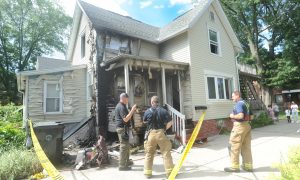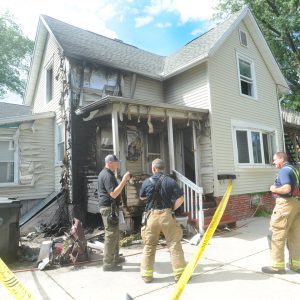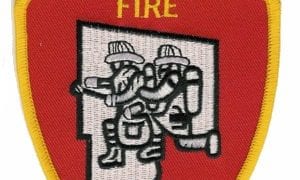WESTFIELD – Clocks will “fall back” on Sunday and, although fire officials usually recommend that batteries in smoke and carbon monoxide detectors be replaced at the end of Daylight Savings Time, Westfield Fire Chief Mary Regan points out that there is an extra need to be vigilant this year.
The recent unseasonable snow storm which brought down trees and limbs has sent ripples of less obvious repercussions, and some of them impact fire safety for local residents.
Regan points out that residents may be noticing the low battery alerts from their carbon monoxide detectors in the form of chirps, beeps or alarm activations. She said that the carbon monoxide detectors, both plug-in and hard-wired versions, have battery backups but the battery life of the back up systems may have been shortened by the extended power outages caused by the storm. She said that hard-wired smoke detectors also have battery back-ups and those may also have been stressed by the power outages and should be replaced.
Regan said that residents who are not sure why a detector may be sounding an alarm should call the fire department at 562 2329. However, she said if anybody in the house feels sick, the 911 line should be used. “If you get a solid ringing alarm and there’s anybody in the house with flu-like symptoms you should get out of the house into the fresh air” she said.
Regan said that firefighters have responded to several calls for carbon monoxide alarms since the storm and resulting power outages but said that, “in every case so far” the problems have been “battery issues or problems with the detector itself.”
However, she said, if residents are unsure if there is a problem they should call the fire department “and we’ll bring a meter out to check.”
Regan explained that heating equipment which can produce carbon monoxide is typically fueled by gas, oil, kerosene, wood or charcoal. Such heating sources should be checked periodically for safety to ensure that the equipment is working properly and placed in a safe area.
Regan said that gasoline powered generators and other gasoline engines should never be used inside nor positioned near windows or doors. Her advice was echoed by Southwick Fire Chief Rick Anderson.
In a message posted on the town’s web site, Anderson pointed out that generators should not be used inside structures, including garages, and persons who experience symptoms including headache, fatigue, shortness of breath, dizziness or nausea should move into fresh air and call 911.
Regan advises that anybody using a generator outside should move a plug-in carbon monoxide detector to a window or door nearest the generator to get the earliest possible warning of any carbon monoxide problems.
Regan also advises that vent pipes, flues and chimneys should be checked and also provided a list of heating sources which should not be used.
Charcoal grills should never be used indoors.
Kerosene heaters which are not vented are illegal in the Commonwealth and should not be used.
Gas ovens should not be used for heating a residence.
A vehicle should not be operated inside a garage even if the door is open.
And, for year-round safety, replace the batteries in smoke and carbon monoxide detectors in the spring and fall when the time changes.
“When you change your clocks, you change your batteries” she said.







